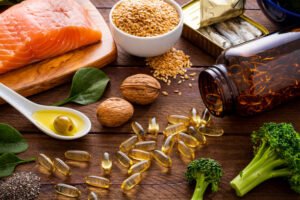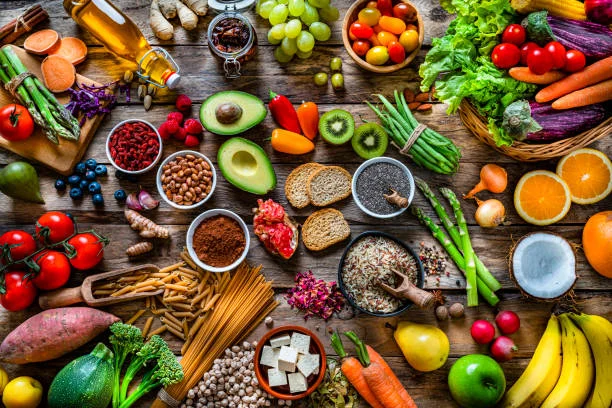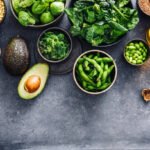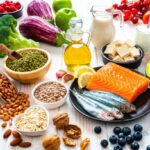As its nutritional benefits are discovered, chia seeds from the Salvia Hispanica plant are grown and processed into oil. The popularity of chia seeds as a superfood has led growers to use specific cultivation methods to boost productivity and quality.
Chia seed cultivating brings unmistakable challenges and unique opportunities. Calm locales with well-draining soil are great for these small seeds. Chia plants are reasonably bug— and disease-resistant, so producers might grow them with little pesticide. Along these lines, chia is excellent for organic farming. Top-notch chia seed farmers use crop rotations to preserve soil health and minimize nutrient loss. This promotes sustainable farming and soil fertility, essential for small nutrient-packed seeds.
Chia cultivating also requires water management. Once established, chia plants are drought tolerant, but they need consistent watering during germination and growth. Chia makers use drip irrigation to water the roots directly, reducing evaporation and conserving water. This approach is beneficial in water-scarce areas.
Chia seeds are tiny and easily detached from the plant, making harvesting them delicate. Manual harvesting is typical on smaller farms or in low-wage areas. As chia seed demand rises, mechanized harvesting methods are being improved to save time and labor. These procedures must be mild to avoid crushing seeds and minimize loss.
Seeds are cleaned and sifted after harvest to remove contaminants and undeveloped seeds. Chia seeds’ quality determines their market worth. Winnowing and sieving are used to select high-quality seeds for sale. Seeds must be stored properly to maintain nutritional quality and prevent deterioration. Chia seeds’ high oil content makes them rotten if improperly stored. Chia seeds last longer in excellent, dry circumstances.
Chia oil extraction is crucial to the value chain. High omega-3 fatty acid concentration makes chia oil popular. Cold pressing is best for obtaining chia seed oil because high temperatures destroy omega-3 oils. This method extracts oil from seeds by pressing them at low temperatures without chemicals or solvents. The oil is pure, nutritious, and high-quality.

In addition to cold pressing, some companies use supercritical fluid extraction to extract oil at controlled temperature and pressure. This method produces more oil without compromising quality and is efficient. It involves more expensive equipment and investment, making it less accessible to smaller companies.
Sustainable cultivation and production are becoming more critical in the chia seed sector. Producers are exploring using chia seed processing byproducts, such as seed flour left after oil extraction, as protein-rich livestock feed or food ingredients. This method reduces waste and improves production.
Chia seed farming and oil production require strict quality control. Each step, from seed selection to oil extraction, is regulated to ensure high standards. Laboratory testing for pollutants and nutritional analysis is regular to ensure product safety and quality.
Innovative agricultural and production methods are needed to meet the worldwide demand for chia seeds and oil. These developments may involve genetic research to improve chia seed kinds, automated harvesting, and oil extraction. These activities strive to accommodate rising customer demand while ensuring quality and sustainability. Research and development are making chia seed farming and oil production more efficient and sustainable.
Chia Oil’s Health and Beyond Benefits
Chia oil shows the strength of such a tiny seed. This oil is a kitchen staple for health-conscious people and a powerful source of nutritional advantages that improve overall health. Chia oil’s mild, nutty flavor is gaining popularity among health enthusiasts, and for good reason.
Chia oil, made from the tiny but powerful chia seed growing in Mexico and Guatemala’s lowlands, is high in omega-3 fatty acids, especially alpha-linolenic acid. This essential fatty acid is vital to all cell membranes. High omega-3 concentration reduces inflammation linked to cardiovascular disease, arthritis, and several malignancies. Consuming chia oil regularly can help preserve heart health and reduce inflammation.
Chia oil is antioxidant-rich and anti-inflammatory. Free radicals, unstable chemicals that destroy cells and cause aging and disease, generate oxidative stress, which these substances counteract. Antioxidants stabilize free radicals and reduce their harm. Eat chia oil to boost your skin’s resilience to environmental stresses.

Chia oil also helps control cholesterol. This oil’s ‘good cholesterol’ HDL cholesterol and triglycerides improve cardiovascular health. Chia oil’s lipid profile adjustment prevents artery hardening and minimizes the risk of stroke and heart attack, which are global health issues.
In addition to cardiovascular benefits, chia oil improves digestion. Its high fiber content promotes bowel regularity and digestive health, which can be helpful for those with digestive issues like IBS. The oil’s high fiber content makes you feel full, which might help you lose weight by reducing overeating and snacking.
The metabolic benefits of chia oil also help manage diabetes. The oil improves insulin sensitivity and lowers blood sugar after meals, making it a helpful diabetes supplement. Given the rising global diabetes rate, this is crucial.
Chia oil’s culinary versatility makes it appealing. It can be used as a salad dressing, added to smoothies for nutrition, or cooked, but not at high temperatures to maintain its nutrients. Its mild flavor makes it ideal for adding health benefits to daily meals without sacrificing enjoyment.
The psychological effects of chia oil are essential. Omega-3 fatty acids affect mood and cognition. Regular chia oil use may improve mood and cognition, improving mental wellness. Studies show that omega-3 fatty acids alter neurotransmitter function, which affects brain processing and mood regulation.
Health supplements made with chia oil are environmentally friendly. Chia plants are hardy, need little water, and may be cultivated naturally without pesticides. Chia oil aids sustainable agriculture, preserving natural resources and lowering its environmental impact.
The rising popularity of chia oil promotes a plant-based diet, which is good for world health and the environment. As more people choose plant-based nutrients, health outcomes may improve while the environmental impact of resource-intensive food production decreases.
Chia oil enhances physical, mental, and environmental wellness, making it more than just a supplement. As the study uncovers the benefits of this extraordinary oil, its position in a healthy lifestyle may grow. Chia oil’s rising popularity indicates a move toward diets that can improve health and the environment.






Leave a Reply